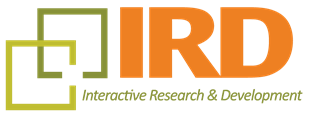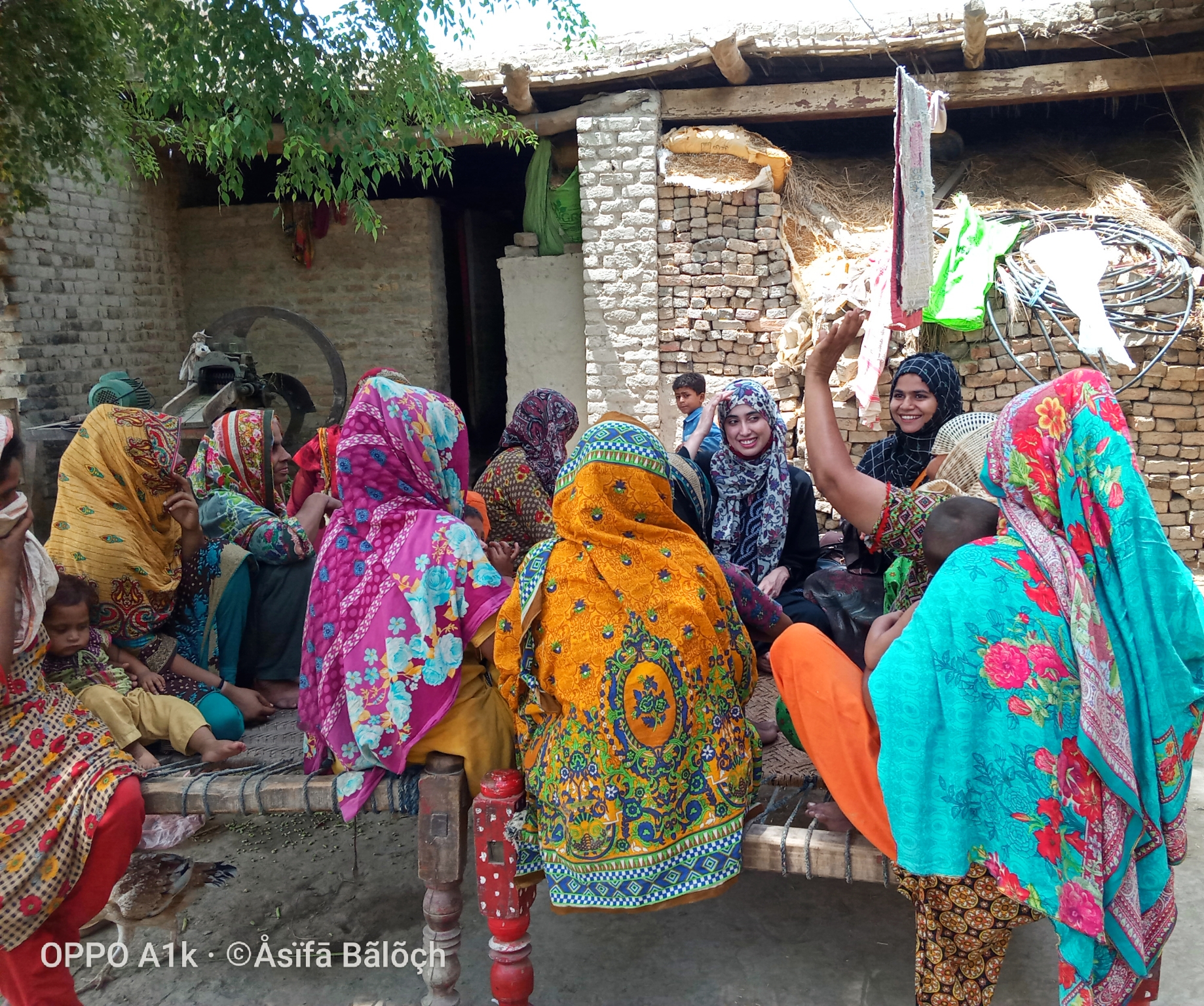In April 2019, Pakistan faced its ninth concentrated HIV epidemic. This outbreak largely affected children in the Ratodero Town, District Larkana, Sindh, and brought to light multifarious marginalisation of people with lived experiences. Historically, HIV campaigns in Pakistan have focused on fear-based messaging around prevention and medical information, which may have further propagated stigma and discrimination, deteriorating health outcomes of those affected. To address this challenge and create acceptance for, while addressing stigma against, people with lived experiences of HIV, Sujaag (meaning ‘to-awaken’) – a hybrid community engagement and mass communications project by IRD – was launched in the region.
Sujaag’s activities comprised immersive and participatory engagement – via Community Support Groups (CSGs), health awareness sessions, and Theatre of the Oppressed performances – amplified by mass communications through branded local transport, contextualised advertisements on regional television channels, and interactive social media. To co-create contextual solutions, Sujaag took an inclusive approach utilising a socio-ecological lens: 15 Community Health Workers (CHWs) formed CSGs – including people living with HIV (PLHIV), caregivers, and general population. CHWs employed an adaption of The Constellation’s Community Life Competence Process (CLCP), which took CSGs through a rigorous learning cycle to identify shared goals and develop action plans embedded in collective resources (see Figure 1).
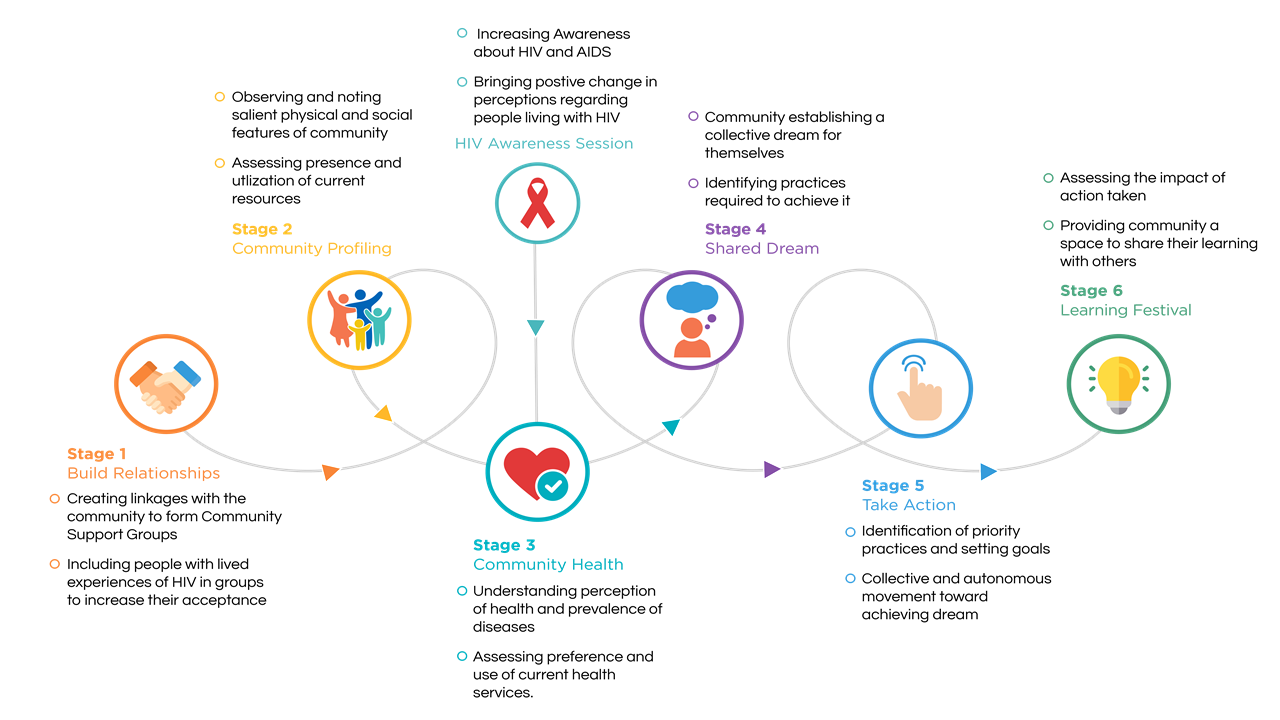
Figure 1: Adapted CLCP for Sujaag.
Figure 2 showcases the progress of CSGs via this adapted CLCP over the course of 9 months during the pilot and scale-up phases.
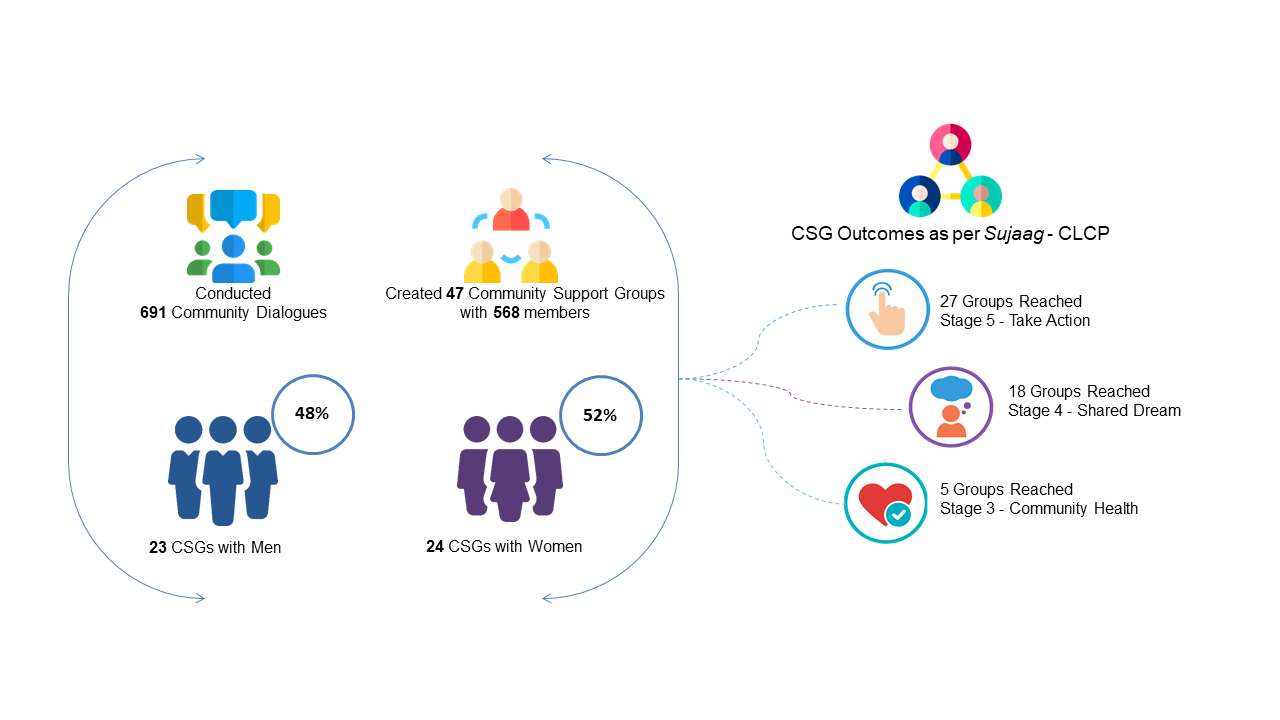
Figure 2: CSG progress via adapted CLCP
Through collaborative efforts, CSGs took active measures to improve lives of PLHIV, their caregivers, and the general community, including: advocacy (drafting letters for health and educational services), environmental upgradation (clean-up drives), positive health seeking (HIV screening mobilisation; preventive practices), and formation of village committees (on nutrition, health, and education).
“Prior to becoming part of this CSG we never questioned whether the doctor treating us was legitimate or not. Now we have realised the importance of asking questions for the sake of our health.” – CSG member, Bakrani Town.
“I used to face hatred because my child was diagnosed with HIV, but now things have changed; people in the village have learned that HIV doesn’t spread when kids play together.” – Mother, Village Thango Khan Bozdar.
These local support systems highlight that inclusion of lived realities humanizes HIV discourse, which medical fear-based messaging is unable to accomplish. Moreover, collective efforts that leverage social capital can promote sustainable social transformation.
By Sujaag.
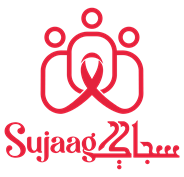
Figures and photos courtsey of IRD.
